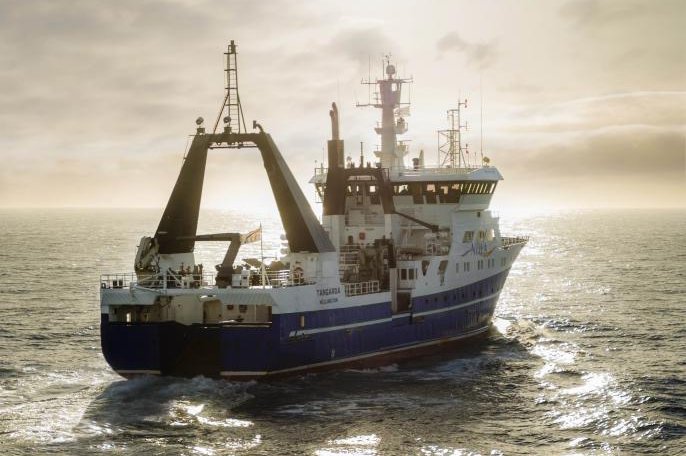Greenpeace opposition to maritime research activity represents a minority viewpoint, New Zealand research authority says. Photo courtesy of New Zealand's National Institute of Water and Atmospheric Research.
WELLINGTON, New Zealand, Nov. 24 (UPI) -- A government-backed research authority in New Zealand said Greenpeace opposition to activity said to be centered on oil represents a minority viewpoint.
Five activists from Greenpeace stormed the Tangoroa research vessel, saying it was surveying offshore New Zealand on behalf of Norwegian energy company Statoil and U.S. supermajor Chevron.
"In response, three activists got on-board the vessel and locked themselves to the top of its mast, while a further two are secured to the deck," the advocacy group said.
John Morgan, chief executive of the National Institute of Water and Atmospheric Research, said the government funds a wide range of offshore research activities, from marine biodiversity to minerals and petroleum.
"We take health and safety and security extremely seriously and marine research is a dangerous operating environment," he said in a statement. "Whilst we are tolerant of minority views, trespassers putting themselves and others at risk is a matter for the police to deal with."
Oil by itself is the fourth-largest export for New Zealand, bringing in around $700 million each year in royalties and taxes. The government said there are around 149 million barrels of oil reserves remaining in fields already in production.
Greenpeace campaigner Steve Abel said the research vessel is emblematic of the government's "obsessive" oil agenda.
"The Tangaroa is trying to find oil, which the industry then wants to burn, heating up our planet," he said. "This will cause global suffering."
A federal government report from August finds renewable energy made up 39.5 percent of the nation's total primary energy supply, a measure of total domestic energy use. New Zealand utility company Genesis Energy, meanwhile, said it's on pace to shut down its last two coal-fired power plants by December 2018, effectively marking the end of coal power in New Zealand.















